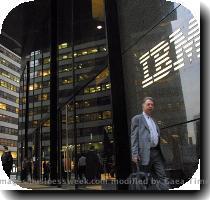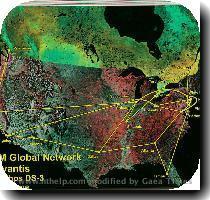Hewlett-Packard CEO Hurd got $24M pay package for 2009, nearly 30 pct less than prior year
By Jordan Robertson, APTuesday, January 12, 2010
Hewlett-Packard CEO got $24M pay package for 2009
SAN FRANCISCO — Hewlett-Packard Co. CEO Mark Hurd got a pay package in latest fiscal year the company valued at $24.2 million, according to an analysis of a company filing Tuesday.
The package represents a 29 percent drop from the year before, partly because Hurd got a much smaller bonus as HP battled a tough year in which technology budgets were devastated, and the company’s revenue and profit fell.
Still, in a sign that investors are optimistic about HP’s plans, the company’s stock has more than doubled since bottoming out at its 52-week low of $25.39 in March.
HP’s proxy filing with the Securities and Exchange Commission comes as the company is undergoing a big transformation. With the $13.9 billion acquisition of Electronic Data Systems in 2008, HP is changing into a services powerhouse that competes with IBM Corp. for some of the most lucrative technology deals — long-term contracts for outsourcing and other services that can carry high profit margins.
Still, some of its biggest businesses are personal computers and printers, two areas that have been hit hard by the economic downturn.
HP’s profit in the last fiscal year, which ended Oct. 31, fell 8 percent to $7.7 billion, while revenue slipped 3 percent to $114.6 billion.
The filing showed that Hurd, 53, got a salary of $1.3 million, down from his $1.5 million salary the year before.
His base pay was cut 20 percent in 2009 as part of companywide pay cuts announced in February. But Hurd recouped the difference with his $1.2 million bonus, which HP said included the amount its executives’ pay was reduced under the pay-cut plan. At the time of the cuts, Hurd said that all employees might wind up making up the difference in the form of bonuses if the company performed well.
Hurd received a $5.3 million bonus the year before.
HP, which is based in Palo Alto, said some executives bonuses’ were hampered by the fact the company’s revenue in all business units were below internal targets for bonuses set in January 2009, “at a time when the full extent of the economic downturn that had begun in the fall of 2008 was not known.”
Net profit was below target in some business units, including the personal computer division, but above target in others, including the printer and printer-ink division.
In May 2008, the company had approved a special cash bonus program for Hurd and two other executives. Payouts under that program were based on HP’s cash flow from operations as a percentage of the company’s revenue, a metric that the company said came in ahead of its target.
Hurd’s total cash bonus based on HP’s performance was $14.6 million, about $4 million less than the year before.
His additional compensation was $475,192. Of that, $176,879 went for Hurd’s home security and $175,776 went toward his personal use of HP aircraft.
In addition, HP gave Hurd restricted stock the company valued at $6.6 million.
The company said Hurd made $2.2 million by exercising 100,000 stock options and had $5.0 million worth of stock vest.
The Associated Press formula for calculating the value an executive’s pay packages is designed to isolate the value the company’s board placed on the executive’s total compensation package during the last fiscal year.
It includes salary, bonus, performance-related bonuses, perks, above-market returns on deferred compensation and the estimated value of stock options and awards granted during the year. The calculations don’t include changes in the present value of pension benefits, and they sometimes differ from the totals companies list in the summary compensation table of proxy statements filed with the Securities and Exchange Commission, which reflect the size of the accounting charge taken for the executive’s compensation in the previous fiscal year.
Tags: Corporate Governance, North America, Personnel, San Francisco, United States

